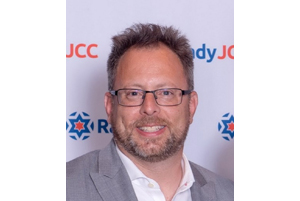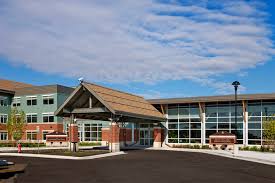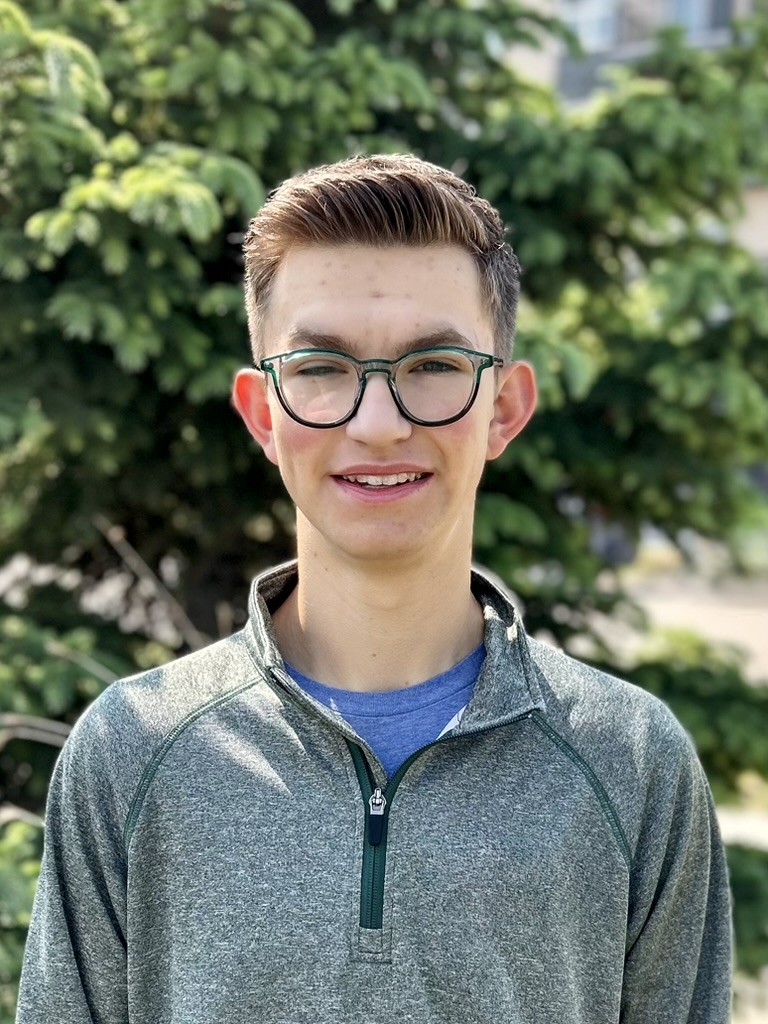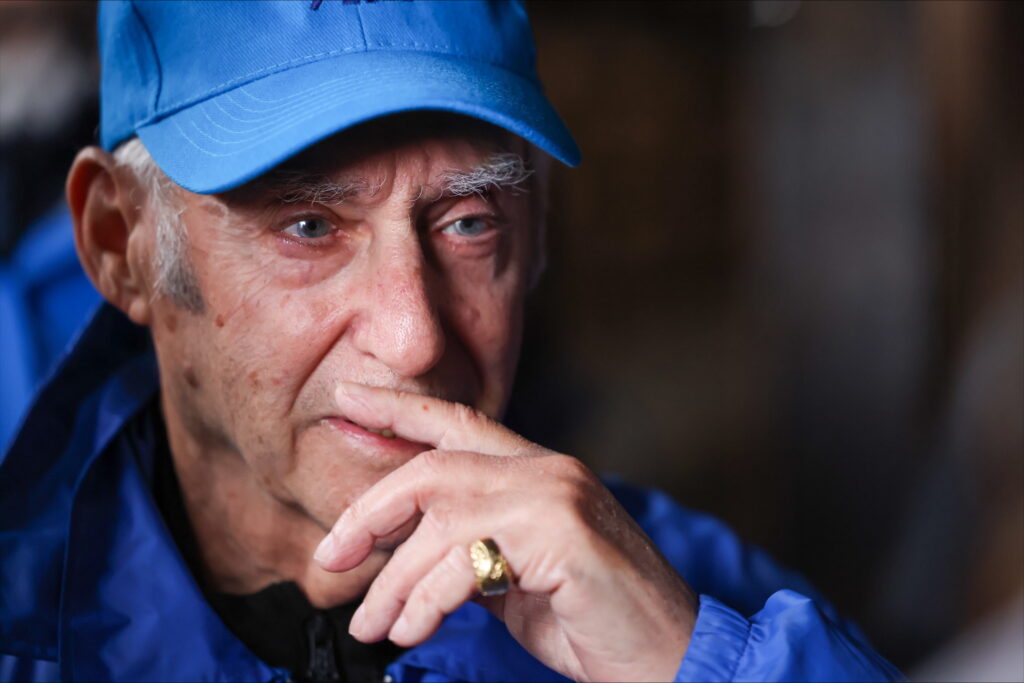Local News
Rady JCC Executive Director Rob Berkowits on what the future holds for the Rady JCC

By BERNIE BELLAN It’s been 17 months since most Rady JCC members have actually set foot in what had become the centre of Jewish life in Winnipeg. From time to time we’ve written about how Rady JCC Executive Director Rob Berkowits has been forced to pivot, then pivot again and again, as first, stringent lockdown measures were imposed in March 2020, then eased in June 2020, then reimposed again in the fall, and only recently eased again in July.
We noted in January this year that all Rady JCC employees had been laid off in the fall, save Rob himself, Zac Minuk, Director of Development, Partnerships & Communications, and two members of the finance department, Barry Miller and Victoria Morton. As well, no one in the Early Learning Centres has been laid off.
And, while expenses were drastically reduced as a result, the fact that memberships were frozen took a very heavy toll on the Rady JCC’s revenues: By the end of September 2020 it had $700,000 less in revenues than it had anticipated.
While a $700,000 grant from the federal government filled that particular hole, the Rady JCC was still faced with having to pay the Asper Campus monthly fees. On top of that the cancellation of the annual sports dinner for what has now been two consecutive years has only added to the pain of losing membership revenue.
Still, despite the challenges facing the Rady JCC, it did begin to offer programming online, starting with the ever popular Music ‘n Mavens series in January, as well as a Jewish Film Festival, and a program produced jointly with the Gwen Secter Centre titled “Familiar Faces”.
The summer period is generally a quiet one for the Rady JCC – except for the sounds of hundreds of kids enjoying day camp at the Asper Campus. When we read the farewell message announcing Assistant Executive Tamar Barr’s departure, however, we wondered whether the Rady JCC could ever return to being the beehive of activity it had been since the doors to the Asper Campus first opened in 1997. So, we contacted Rob Berkowits to ask him for an update as to what the future holds in store for the Rady JCC. We also wanted to know who, if anyone, could fill the very large shoes that Tamar Barr had filled for so many years.
We began by asking Rob: “When was it Tamar was let go? Was it in October?”
Rob: “She was placed on lay off. She was never ‘let go’. All our staff were also laid off.”
JP&N: “I asked you this before, but since Tamar was so heavily involved with the cultural component of the Rady JCC, why didn’t you try to emulate what other JCCs had done – for instance the Vancouver JCC?”
Rob: “Remind me again what they did in Vancouver.”
JP&N: “It was all online. They had a lot of game playing– Bridge, Mah Jong, exercise classes. They also had something called “Dinner and a Movie”. They had a monthly concert series, a musical trivia program, yoga, morning stretch. I remember talking to you about that back in January, but you pointed out that the Vancouver JCC was still charging members for memberships without having frozen any.”
Rob: “We didn’t have a platform to offer that kind of programming in the fall, but in December we brokered a partnership with the Asper Foundation and began offering programs like Music ‘n Mavens, the Jewish Film Festival, the Asper Jazz Performance series – and the program you participated in (‘Familiar Faces’), which we did together with the Gwen Secter Centre. We also began delivering at that time some online workouts, like yoga.
“All tallied, our virtual programming reached over 10,000 community members. Many people told us that it was our programming that allowed them to continue to feel connected to the Jewish community when so many of us were isolated at home. We offered all of our programming free of charge so no one felt left out.”
JP&N: “Gwen Secter has begun filling the void that I would have thought you might have wanted to fill – with their summer concert series. But they’re doing that in their parking lot – it’s a pretty small venue – can only hold 25 max. Did you ever consider doing something like that – say, a concert series outdoors at the Campus?”
Rob: “Not in the summertime. Traditionally the Rady respects the fact that Winnipeggers go to their cottages in the summer and the reason we offer members the opportunity to freeze their memberships in the summer is there are very few who wish to participate in summer programming.
“We are about to launch a drive-in event which will take place in August. Most of our programming in the summer time is directly related to the day camp program.
“We’re going to announce a roll out program for the fall, which will include Tarbut, the Jewish Business Network, weekly programming that will include parent and baby, fun zone, birthday parties. Of course, this will all be based on the guidelines about what we’re allowed to have.
“We do believe there will be a virtual element in what we have planned because there are seniors who will not be comfortable in coming in person to the centre. We also want to be respectful of the fact that this virtual age is here to stay and as borders reopen, many snowbirds will head south and the virtual content that we’ll be able to produce and deliver will be relevant to them.”
JP&N: “Talking about Tarbut – that would involve people sitting in close proximity in the Berney Theatre. I wonder how comfortable people are going to be doing that, especially when we’re being told to expect a fourth wave (of Covid) in the fall.
“But, you’re talking about programming. Who is designing the programs? This would have been something that would have fallen under Tamar’s rubric.”
Rob: “Laura Marjovsky’s a longtime program manager. We recalled Laura and she agreed to come back. Now she’s in the process of recalling other staff that would take on a variety of roles. The department will not be as large and as robust as it was previously, but it will still provide us with our ability to provide arts and cultural programming, as well as programming for seniors, for teens, tweens, families, newcomers, and individuals with various levels of physical and cognitive disabilities.”
JP&N: “Speaking bluntly, if Tamar were to say that she was willing to work – even on a limited basis, is that something you would consider?”
Rob: “I think that’s something more for Tamar to decide. Tamar made the decision that she wanted to pursue other things.”
JP&N: “I did have a conversation with her. I got the impression that Tamar, under the right circumstances, would be interested in coming back in some capacity. But the message you sent to members seemed to be pretty much a final good bye – effectively closing the door to her returning. Are you saying now that it (Tamar Barr returning to the Rady JCC) is something that you would not rule out?”
Rob: “Nothing is out of the question, I guess, but it’s not a focal point moving forward. Tamar has moved on permanently from the Rady. We are moving forward into this next era of a sustainable hybrid of virtual and in-person arts and cultural programming without her. We have no plans or intentions to work with her on any of this going forward and thank her for everything she did while she was here.”
JP&N: “I don’t want to make this the focal point of what I’m going to be writing, but I just got the impression from reading that farewell message to Tamar that it was “good bye Tamar”, but Tamar is still relatively young – and, quite frankly, there aren’t a lot of jobs out there for cultural programmers. I think that, if Tamar had her ‘druthers’, she’d rather be back at the Rady JCC.”
Rob: “I talked to Tamar about doing something to honour her years of service, and she seemed amicable to do that. But when do you do it so that you can do it justice?”
JP&N: “Switching gears – let’s talk about the exercise facility. You’re up to 50% capacity now – right? So what’s the response been?”
Rob: “The traffic is still slow upstairs, but to be honest I attribute that to it being summertime. Normally we see a significant number of people freeze their memberships for July and August, and we see increased traffic in the facility after the Labour Day long weekend – and we anticipate that’ll be the same.
“The traffic hasn’t been bad; I don’t want to give you that impression. It’s just not at a very high level right now.”
JP&N: “We were in a similar situation last summer, when attendance was way down – and you were expecting a healthy return of members in the fall – and then we got hit with a second wave in the fall – and that kiboshed everything again. I don’t want to be a purveyor of doom and gloom but you must be in such a terrible predicament. How do you plan when you don’t know what’s around the bend? Also, have you done any polling of members to ask how many are actually planning on coming back?”
Rob: “We’re in the process of doing that right now. There are many members whose memberships have lapsed, but we don’t think it’s an issue of their having left the Rady and they’re going somewhere else. Remember, we closed three different times – and reopened three different times. I think we’ll get a real sense of where we’re at (in terms of membership) after the Labour Day long weekend, but keep in mind the Jewish holidays are early this year.”
JP&N: “What about outreach to the community – with the newcomers to the community? Is that just too difficult to plan under these conditions?”
Rob: “We’re looking at various partnerships with Jewish Child and Family Service. I’ve already set up several meetings with Al (Benarroch, Executive Director of JCFS).
For youth, we’re going to bring back ‘Strictly Tweens’, ‘Kids at the J’, we’re going to do BBYO chapter programming again – which has continued on in a virtual manner. We’re going to bring back seniors’ programming – like Bridge and Mah Jong, the Stay Young Club, Active Living classes. We’re going to bring back the lecture lunch series – which is very popular with seniors.
“We’ll obviously offer a hybrid combination of in-person and virtual options for all these things. For inclusion, we’re going to offer ‘Fun and Fitness with Friends’. We’ll do another version of the Israel Asper Jazz series, the Israel International Film Festival.”
At the end of our conversation Rob told me that he would send me a more complete list of programs that the Rady JCC is planning to roll out for the fall. It turns out that he covered them all during our conversation at one point or another – except for birthday parties and Rosh Hashanah Outdoor Challah Bake (Sept. 2).
Local News
Further to the Simkin Centre’s financial situation

By BERNIE BELLAN A while back I published an article about the deficit situation at the Simkin Centre. (You can read it at “Simkin Centre deficit situation.“) I was prompted to write that particular article after reading a piece written by Free Press Faith writer John Longhurst in the August 5 issue of the Free Press about the dire situation personal care homes in Winnipeg are in when it comes to trying to provide their residents with decent food.
Yet, Longhurst made one very serious mistake in his article when he wrote that the “provincial government, through the Winnipeg Regional Health Authority, has not increased the amount of funding it provides for care-home residents in Manitoba since 2009.”
In fact, the WRHA has given annual increases to personal care homes, but its allocations are not broken down by categories, such as food or salaries. As a spokesperson for the WRHA explained to me in an email: “PCHs receive per diem global operating funding based on the number of licensed beds they operate. This funding model is designed to support the full range of operating costs associated with resident care, including staffing, food services, utilities, building operations, and other day-to-day expenses.”
Now, one can make a perfectly valid argument that the level of funding from the WRHA has not kept up with inflation, especially inflation in food costs, but the Simkin Centre is in an even more precarious position because of the skyrocketing cost of kosher food.
“In recent years,” according to an article on the internet, “the cost of kosher food has increased significantly, often outpacing general food inflation due to unique supply chain pressures and specialized production requirements.”
Yet, when I asked Laurie Cerqueti how much maintaining a kosher facility has cost the Simkin Centre, as I noted in my previous article about the deficit situation at Simkin, she responded: “approximately $300,000 of our deficit was due to food services. I do not have a specific number as far as how much of the deficit is a result of kosher food…So really this is not a kosher food issue as much is it is an inflation and funding issue.”
One reader, however, after having read my article about the deficit situation at Simkin, had this to say: “In John Longhurst’s article on Aug 5, 2025 in the Free Press, Laurie (Cerqueti) was quoted as saying that the annual kosher meal costs at Simkin were $6070 per resident. At Bethania nursing home in 2023, the non-kosher meal costs in 2023 were quoted as $4056 per resident per year. Even allowing for a 15% increase for inflation over 2 years, the non-kosher food costs there would be $4664.40 or 24% lower than Simkin’s annual current kosher food costs. If Simkin served non-kosher food to 150 of its 200 residents and kosher food to half of its Jewish residents who wish to keep kosher, by my calculation it would save approximately $200,000/year. If all of Simkin’s Jewish residents wished to keep kosher, the annual savings would be slightly less at $141,000.”
But – let’s be honest: Even though many Jewish nursing homes in the US have adopted exactly that model of food service – where kosher food is available to those residents who would want it, otherwise the food served would be nonkosher, it appears that keeping Simkin kosher – even though 45% of its residents aren’t even Jewish – is a “sacred cow” (pun intended.)
So, if Simkin must remain kosher – even though maintaining it as a kosher facility is only adding to its accumulated deficit situation – which currently stands at $779,426 as of March 31, 2025,I wondered whether there were some other ways Simkin could address its deficit while still remaining kosher.
In response to my asking her how Simkin proposes to deal with its deficit situation, Laurie Cerqueti wrote: “There are other homes in worse financial position than us. There are 2 homes I am aware of that are in the process of handing over the keys to the WRHA as they are no longer financially sustainable.”
I wondered though, whether the Simkin Centre Foundation, which is managed by the Jewish Foundation of Manitoba might not be able to help the Simkin Centre reduce its deficit. According to the Jewish Foundation’s 2024 annual report, The Saul and Claribel Simkin Centre Foundation, which is managed by the Jewish Foundation, had a total value of $11,017,635.
The Jewish Foundation did distribute $565,078 to the Simkin Centre in 2024, but even so, I wondered whether it might be able to distribute more.
According to John Diamond, CEO of the Jewish Foundation, however, the bylaws of the Foundation dictate that no more than 5% of the value of a particular fund be distributed in any one year. There is one distinguishing characteristic about the Saul and Claribel Simkin Centre Foundation, in that a portion of their fund is “encroachable.” The encroachable capital is not owned by JFM. It is held in trust by JFM but is beneficially owned by Simkin, similar to a “bank deposit”. While held by the JFM, these funds are included in the calculation of Simkin’s annual distribution.
I asked John Diamond whether any consideration had been given to increasing the distribution that the Jewish Foundation could make to the Simkin Centre above the 5% limit that would normally apply to a particular fund under the Foundation’s management.
Here is what John wrote in response: “The Simkin does have an encroachable fund. That means that at their request, they can encroach on the capital of that fund only (with restrictions). This encroachment is not an increased distribution; rather, it represents a return of capital that also negatively affects the endowment’s future distributions.
”It is strongly recommended that encroachable funds not be used for operating expenses. If you encroach and spend the capital, the organization will receive fewer distribution dollars in the next year and every year as the capital base erodes. Therefore, the intent of encroachable funds is for capital projects, not recurring expenses.”
I asked Laurie Cerqueti whether there might be some consideration given to asking for an “encroachment” into the capital within the Saul and Claribel Simkin Centre Foundation?
She responded: “We are not in a position where we are needing to dip into the encroachable part of our endowment fund. Both of our Boards (the Simkin Centre board and the Saul and Claribel Simkin Centre Foundation board) are aware of our financial situation and we are all working together to move forward in a sustainable way.”
At the same time though, I wondered where donations to the Simkin Centre end up? Do they all end up in the Simkin Centre Foundation, for instance, I asked Laurie Cerqueti on December 15.
Her response back then was: “All donations go through our Foundation.”
I was somewhat surprised to read that answer, so I asked a follow-up question for clarification: “Do all donations made to the Simkin Centre end up in the Simkin Centre Foundation at the Jewish Foundation?”
The response this time was: “No they do not.”
So, I asked: “So, how do you decide which donations end up at the Foundation? Is there a formula?”
Laurie’s response was: “We have a mechanism in place for this and it is an internal matter.”
Finally, I asked how then, the Simkin Centre was financing its accumulated deficit? Was it through a “line of credit with a bank?” I wondered.
To date, I have yet to receive a response to that question. I admit that I am puzzled that a personal care home which has a sizeable foundation supporting it would not want to dip into the capital of that foundation when it is facing a financial predicament. Yes, I can see wanting the value of the foundation to grow – but that’s for the future. I don’t know whether I’d call a $779,425 deficit a crisis; that’s for others to determine, but it seems pretty serious to me.
One area that I didn’t even touch upon in this article, though – and it’s something I’ve written about time and time again, is the quality of the food at the Simkin Centre.
To end this, I’ll refer to a quote Laurie Cerqueti gave to John Longhurst when he wrote his article about the problems personal care homes in Winnipeg are facing: “When it comes to her food budget, ‘we can’t keep making the same number of bricks with less straw.’ “
Local News
Exclusive: Security Enhancement Fund to be announced by Province in coming days

By NOAH STRAUSS The province is set to announce a new program called the Security Enhancement Fund, which will provide funding to religious and faith groups to improve security at institutions such as synagogues and mosques. In an exclusive interview, Minister of Justice Matt Wiebe outlined the plan and detailed what the province has already done to help protect Jewish Manitobans.
“What we want to do is to be able to provide the community with the kind of tools that they need to stay safe and to ensure that everyone in the community feels safe,” said Wiebe.
The fund will provide a missing link between government and religious communities, and
communities will now be able to make their own choices without money being a big restraint.
Essentially, the power will be in the hands of community leaders and not government officials.
The minister noted that the new partnerships will provide the province a better understanding of the needs of every community. Rather than the province making the choices, they are
essentially giving a voice to each community. The grants, totalling $1 million, will provide funds to enhance security at facilities like synagogues.
The Jewish Post reached out to Dr. Rena Secter Elbaze, executive director of Congregation
Shaarey Zedek. “It’s important that the government show us that they’re taking security seriously and stepping up to the plate to make this offer. We will absolutely be applying for grant money,” she said. Elbaze also wants to know whether or not the government will cover the costs of things the synagogue has already spent money on. She noted that the province has, in the past, made grants available to have security guards present.
When speaking about what the Justice Ministry has already done to protect Jewish Manitobans, Wiebe brought up the new special prosecutor that is focusing on hate crimes. Wiebe said thespecial prosecutor works closely with the Winnipeg Police Service “to support investigations and prosecute hate crimes. Wiebe also went on to say how the Department of Education has been helping to fight antisemitism. “The creation of the Holocaust education curriculum is an important step in the right direction,” he said. When asked about Oliver Didtger Ederhof, the individual charged with 14 counts of mischief including vandalism of Shaarey Zedek, Wiebe said decisions like bail and police undertakings are decisions that are in part made by the federal government through the criminal code and policies. “We’re going to continue to advocate for stricter bail reform at the federal level…. I’ve been very clear, we issued clarified directives around bail to our Crown prosecutors.”
The full announcement from the province is expected in the coming days.
Local News
March of the Living 2023 participants form Taste of Hope project to help honour the memory of Holocaust survivor Alex Buckman

By BERNIE BELLAN The March of the Living is an annual two-week international educational program that brings thousands of students and adults to Poland and Israel to study the Holocaust, Jewish history, and the rise of the State of Israel. Founded in 1988, it features a 3-kilometer silent walk from Auschwitz to Birkenau on Yom HaShoah (Holocaust Remembrance Day).
Attendees on the march are accompanied by adults, some of whom themselves have been Holocaust survivors.
Following the week in Poland, participants travel to Israel to observe Yom HaZikaron (Israel’s Memorial Day) and celebrate Yom HaAtzmaut (Israel’s Independence Day), marking a journey from darkness to life.
For many years the coordinator of the march in Winnipeg was Roberta Malam, working on behalf of the Jewish Federation of Winnipeg. More recently Abby Flackman filled that role, and now the person in charge is Lindsey Kerr.
Since its inception 37 years ago the March of the Living has become a rite of passage for many young Winnipeg Jews who have been able to participate as an organized group from Winnipeg and combine visits to the death camp at Auschwitz-Birkenau in Poland with the subsequent trip to Israel.
Then – the Covid pandemic hit – in 2020, and the March of the Living was put on hold for two years – in 2020 and 2021.
In 2022, the March of the Living resumed, but there was no organized contingent from Winnipeg participating. (There may have been some Winnipeggers who did go on the march that year, but if there were any they would have been part of a general Canadian group since there was no Winnipeg coordinator that year.)
In 2023, however, once again a very large contingent of young Canadian Jews – 51 altogether, of whom approximately two-thirds were from Winnipeg, went on that year’s March of the Living. That particular march was memorable for many reasons, including the fact it was the last full march since 2019 and was to remain the last march to have an organized Winnipeg contingent in the past six years as the years 2024 and 2025 were interrupted by the war in Gaza. (There were smaller marches held in 2024 and 2025, but again there was no organized contingent from Winnipeg.)
Recently, we were contacted by one of the participants of that 2023 march, Ethan Levene, who asked us whether we’d be interested in running what turned out be a very poignant story about one particular aspect of that 2023 March of the Living.
Here is what Ethan wrote:
“In April 2023, the Coast to Coast Canadian delegation of March of the Living was privileged to travel with Holocaust survivor Alex Buckman (z”l). March of the Living is a Holocaust education trip that allows participants to visit and bear witness to the sites of the Holocaust. Unfortunately, while sharing his story in Poland, Alex passed away. However, the impact he left on us students was immeasurable.

“While speaking to us in Warsaw, Alex told us the story of his Aunt Becky’s gâteau à l’orange (orange cake). While in Ravensbruck concentration camp, his aunt managed to write down this recipe. After his parents’ murder, his Aunt Becky went on to raise Alex after surviving. In addition to sharing his story, Alex tasked us with baking the cake with family and friends.
“Out of this, a group of alumni from our trip have created this project: ‘A Taste of Hope.’ On February 1st, university students from over 5 universities across Canada will come together to bake the gâteau à l’orange and hear Alex’s story. Proceeds from the event and this fundraising page will support the World Federation of Jewish Holocaust Survivors and Descendants. Alex was heavily involved with this organization, whose mission is to both create community for Holocaust survivors and their descendants and educate about the Holocaust to help fight against antisemitism and all forms of bigotry and hate.
“Here is information from our fundraising page for the event – ‘A Taste of Hope’: Fundraising for A Taste of Hope.
Ethan added that “it’s completely student led, all by alumni from our 2023 trip attending university at these various locations across Canada; Winnipeg, London, Kingston, Montreal.”
He also added: “Follow us on instagram@tastehope.“
Here is a link to a CBC story about Alex Buckman: Alex Buckman story
In a subsequent email Ethan gave the names of Winnipeggers who are involved in A Taste of Hope: Ethan Levene (studies at McGill), Zahra Slutchuk, Alex Stoller (studies at Queens), Coby Samphir, Izzy Silver (studies at Waterloo).
He also added names of others who are involved in the project: Jessie Ages, Anneke Goodwin, Lilah Silver, Ella Pertman, Ellie Vogel, and Talia Cherun.
To find out more about March of the Living in Winnipeg go to: March of the Living


